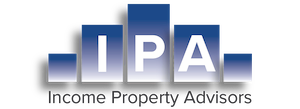Investing in Delaware Statutory Trusts (DSTs) with Problematic Sponsors

Delaware Statutory Trusts (DSTs) are popular investment vehicles that allow investors to hold fractional interests in real estate assets. The success of a DST investment depends heavily on the integrity, experience, and management acumen of the sponsor. A sponsor is a real estate investment and management company that purchases properties under the DST structure and offers investments in the property through the trust. In this article, we will discuss the implications of investing with problematic sponsors and how to discern the quality of a sponsor before investing.
Consequences of a Problematic Sponsor
- Poor Performance and Financial Losses: A bad sponsor may lack the expertise or ethical stance to manage the property effectively, leading to poor performance of the investment. Mismanagement can result in decreased rental income, higher vacancy rates, and ultimately, substantial financial losses.
- High Fees and Expenses: Unscrupulous sponsors might embed excessive fees and expenses in the DST’s structure. These fees might be hidden in the fine print of the Private Placement Memorandum (PPM) and can significantly impact the overall profitability of the investment.
- Misaligned Interests: A sponsor with sponsor-centered language in their materials and PPMs likely prioritize their own interests over those of the investors. This misalignment can manifest in decision-making that benefits the sponsor at the expense of the investment.
- Risky Investments: Some sponsors might engage in overly aggressive or speculative investment strategies. For example, investing in high-return, single-tenant commercial properties with non-credit tenants pose significant risks. If the tenant fails or the business plan falters, the property could lose its anticipated value, especially if the lease rates revert to market averages.
Identifying a Problematic Sponsor
- Experience & Track Record: A trustworthy and competent DST sponsor should have extensive experience in the real estate industry, particularly in managing DST investments. A sponsor with a proven track record of successful DST offerings can provide investors with confidence in their ability to manage the investment. Be cautious of sponsors with limited experience or a history of underperforming investments, as this may indicate a lack of expertise or poor management skills.
- Projections: While every investor seeks high returns, be cautious of DST sponsors who promise overly aggressive or unrealistic financial projections. This may indicate that the sponsor is inexperienced, overly optimistic, or attempting to lure investors with inflated numbers.
- Sales Techniques: Aggressive sales tactics are a red flag. A trustworthy sponsor does not need to pressure investors into making decisions. Their track record and the quality of their offerings should speak for themselves.
- Due Diligence: A reputable DST sponsor should conduct thorough due diligence on potential investment properties, including property inspections, financial analysis, and market research. Be cautious of sponsors who appear to cut corners in this process, as this may lead to poor investment decisions and increased risk for investors.
- Private Placement Memorandum (PPM): The PPM is a crucial document that outlines the investment’s details, including fees, expenses, and the sponsor’s background. Look for clear, transparent terms and reasonable fees that reflect a focus on investor interests rather than those of the sponsor.
- Investment Strategy: Assess whether the investment strategy aligns with your risk tolerance and investment goals. High-risk strategies involving speculative tenants or properties are not suitable for most investors. A well-structured DST investment should offer diversification, both in terms of property types and geographic locations. This helps to spread risk and minimize the impact of localized economic downturns or industry-specific challenges.
- Transparency: Open communication is essential in any investment relationship. A reputable DST sponsor should provide detailed information about the investment property, including its financial performance, management team, and exit strategy. Furthermore, they should be readily available to address any concerns or questions from investors.
- Fees & Commissions: While DST sponsors are entitled to compensation for their services, it is crucial to scrutinize the fee structure and ensure it is fair and aligned with industry standards. Be cautious of sponsors who charge excessive fees, as this may erode your investment returns and indicate a focus on their own profits rather than the best interests of investors.
Sponsor ‘Transparency Test’
Decades of experience in the 1031 and DST industries has given us a keen awareness of how important it is to only invest with the most sound and communicative sponsors. Through this experience, we developed the “Transparency Test” which is a series of questions we use to thoroughly research sponsors. These are just some of the questions we ask:
- Has the sponsor provided clear details in the PPM and due diligence materials where information is upfront and unhidden?
- Do the projections clearly show how the DST property will support the cash flow in the PPM and marketing materials?
- Does the sponsor provide the trailing 24 months’ income and expenses to compare with projections and are they in line with historical financials?
- Does the sponsor provide prompt and transparent reporting at the property level and more broadly of their larger portfolio?
- Does the sponsor provide advanced notice when they are going to market a property for sale or are we blindsided with this information?
- Does the sponsor act in an investor-minded manner when deciding to roll the DST up into their own REIT?
- During the DST sale process, are analysis letters, sale correspondence, and estimated settlement statements provided promptly and within a reasonable timeframe?
- Do the sponsors do what is best for the investors or what is best for themselves?
- Does the sponsor provide annual tax packages on time and with clear information for investors’ CPAs and tax professionals?
- Does the sponsor have an internal investor services/relations department, or do they outsource this important communications hub?
In law school, we learned about the reasonable person standard; one in which a jury might be asked to assume what a hypothetical “reasonable person” would do, given a real set of circumstances presented. An attorney might ask, “would a reasonable person act in a particular way if _______ happens?” DST Investors can apply this same standard to sponsors. Would a reasonable sponsor act as this sponsor is acting? The answer for the sponsors we invest and work with is a resounding, “yes.” The best sponsors go above and beyond a reasonable sponsor.
Conclusion
Investing in a DST with a problematic sponsor can lead to adverse outcomes. A critical analysis of the sponsor’s sales approach, due diligence, and transparency are essential. Choosing a sponsor with a strong ethical foundation, transparent practices, and a solid track record is crucial. We always recommend taking the time to research sponsors, ask questions, and seek the advice of trusted professionals before committing to any investment.
If you have questions or would like to discuss further, contact us today by clicking here.










